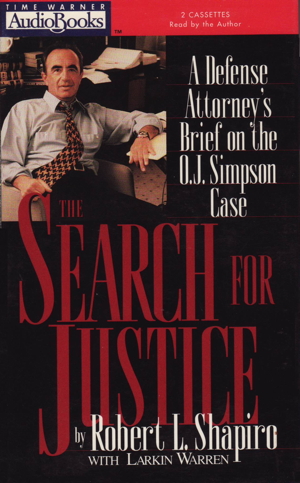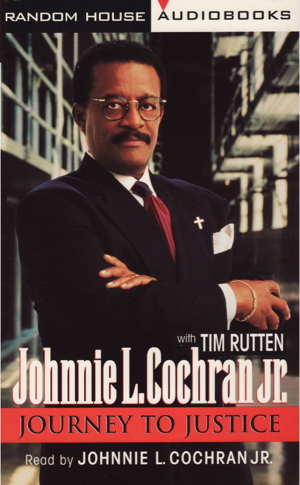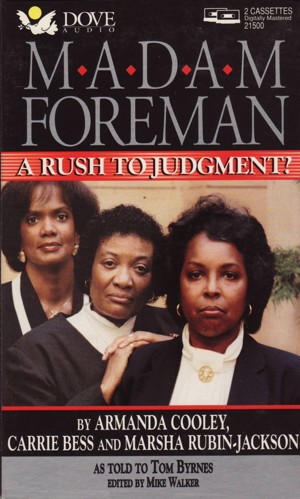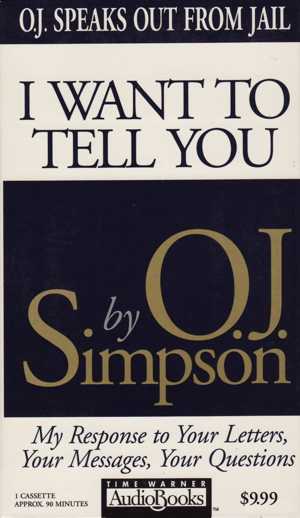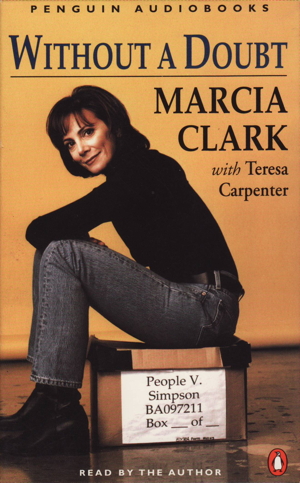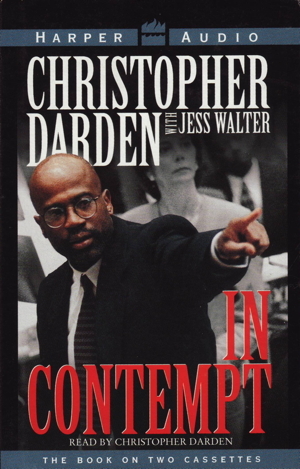
Guilt or innocence was never the issue,
because it's not "justice," it's just an "opinion!"OJ didn't do it!
Looking at the "big picture," the idea of an objective judiciary is ridiculous, because the overwhelming majority of individuals in law enforcement (80%) and the judiciary (97%) are White and male, and as a group the "elite" White men who own and/or control everything have never been egalitarian.
Stupid and naive people believe that honesty, facts, and fair play are key principles of law enforcement and the judiciary. Wake up, because the existence of such highfalutin principles has never been the case, especially when applied to Black people, Native Americans, Latinos, women, and poor people. Throughout the history of the United States of America, facts and evidence, even "live" video footage, doesn't mean a damn thing in the face of wealth, political power, racism, sexism, oppression, discrimination and perpetual indifference by "key" decision makers.
Given the aforementioned, OJ's criminal trial had nothing to do with his guilt or innocence. Get it?
White-owned and White-controlled print and broadcast media heavily promoted the "opinion" OJ was guilty.
Evidence was consistently presented and subsequently disputed by either the prosecution or defense as conjecture, which is an "opinion" or conclusion formed on the basis of incomplete information.
When, in the "opinion" of the jury, OJ was found innocent in the criminal trial I was curious why and how they derived such an "opinion." Yes, I could have and did read several books from the "key" players, but books often contain superfluous, verbose editorials that get in the way. I simply wanted the hear from them, listen to the tone and inflection in their own voices, to discover what exactly shaped their "opinion."
The jury, handpicked by the prosecution and defense, knew the trial was entremely "high profile," and that it might last months, and many employers provide paid jury leave for this prupose. From an original jury pool of 304 prospective jurors of 40 percent white, 28 percent black, 17 percent Hispanic, and 15 percent Asian, the final jury for the trial had ten women and two men, of whom nine were black, two white, and one Hispanic. Only four of the original jurors remained on the final panel.
Jurors
Alternates If any more jurors are dismissed or cannot continue service, their replacements would be selected randomly from this list:
Dismissed
So, if you really, really want to "hear" why the "opinions" of OJ's defense team defeated the "opinions" of the prosecution, you really should purchase, obtain the following audiobooks or CDs. You'll discover:
The prosecution was stupid, poorly prepared, and Marcia Clark and Chris Darben literally focused more on fucking each other than developing and executing an effective strategy to prosecute OJ.
The defense was analytical, creative, and way too smart for the dimwitted, poorly prepared, and unorganized prosection.
Accordingly, given the notoriety of the case, the jury took notes, they paid close attention to the facts, evidence, and the consistency or lack of such, in the presentation of all information. Despite the sexual, racial, and vocational stereotypes used to define and "brand" the jury, nevertheless, the jury wasn't swayed by the "celebrity" of OJ and his legendary defense team, or the media, or the judge. Purchase these audiobooks or CDs below and listen to the first-hand accounts of the defense, prosecution, and jury for yourself.
Reasonable doubt? Of course!And the jury saw some things that the television audience didn't see. I thought the jurors were enormously impressed by the jury view, by going to the scene, by walking into O.J.'s house. I know I was, the first time I walked into that house and saw that it was completely carpeted in white carpet, and the prosecution's trying to portray this blood-drenched murderer going up the steps to the bedroom and taking a shower. There wasn't one spot of blood found on any of the carpet anywhere. I think the jury was impressed when they saw the house and that it didn't fit the image that the prosecution was trying to present of how this thing happened. Gerald Uelmen, member of the Simpson defense team and professor at Santa Clara University School of Law.
OJ's criminal trial had nothing to do with his guilt or innocence; just like the murders of George Floyd, Ahmaud Arbery and thousands and thousands of unarmed and innocent Black men had absolutely nothing to do with their guilt or innocence. Consider the following extremely insightful assessment from the Honorable Judge Joe Brown.
Whenever an "opinion" has greater value than the "truth," then the truth doesn't matter. Get it?
I welcome your feedback.
Trip Reynolds
trip.reynolds@yahoo.com
![]()
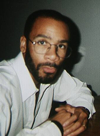 |
Reynolds' Rap First Amendment to the United States Constitution - Congress shall make no law respecting an establishment of religion, or prohibiting the free exercise thereof; or abridging the freedom of speech, or of the press; or the right of the people peaceably to assemble, and to petition the Government for a redress of grievances. |
